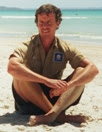LOVIN' IT 2.0
Yesterday I attended two of the three forums led by Hunter Lovins - the international empress of sustainability and Time Magazine "hero for the planet" in 2000. And yes, she really does dress like a Rocky Mountain cowgirl - she is a Rocky Mountain cowgirl! Lovin' it I was! Lovins is the most concise big picture environmental articulator I have had the pleasure of listening to. Her ability to respond to panel and audience discussion by boiling issues down to the most digestible of solutions is inspiring. It's just a pity that there were no more than 50 others at either of the two presentations I attended.
Lovin' it I was! Lovins is the most concise big picture environmental articulator I have had the pleasure of listening to. Her ability to respond to panel and audience discussion by boiling issues down to the most digestible of solutions is inspiring. It's just a pity that there were no more than 50 others at either of the two presentations I attended.
Some of the discussion was brilliant. For the evening session the topic was based on the question "how do we learn?" In this session Lovins presenting several examples of engineers succeeding by looking at natural processes. An excellent point was made by a member of the audience: we're currently re-inventing the wheel - we've lost the ability to "see" nature, and therefore we have lost the "feel" for its capacity. Generally, we're either blind to, or in denial of environmental impact. This is exactly what I wrote about in an earlier thread. We need to re-connect.
The point was given strength by Malibu Hamilton, a panel member from Whaingaroa/Raglan who has extensive community links in the Waikato region. Hamilton is adamant that Maori values - including their role as custodians of the land for future generations - are key to a healthy environment. I couldn't agree more. In Maori learning the connection with the land is dominant. In the "education system" nature is far from consideration. And for most of us "learning on the job" it is economic connections that are most often singular.
I asked a question of Lovins about the role of media. Not of commercial media (where revenue objectives often compromise outcomes), but the role of state broadcasting. It seems to me that communicating an articulate environmental message is paramount, yet there is no real media forum to present the message to "the masses" (except blogging of course!). If reality TV is considered "documentary content" under broadcast quota, and reality TV has been done to death, surely then we have a prime chance to promote environmental values in a public domain.
Thursday, July 13, 2006
Subscribe to:
Post Comments (Atom)



No comments:
Post a Comment